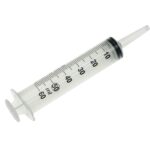Shijū Kata/Gojū Kata (四十肩/五十肩 – Frozen Shoulder)
Shijū Kata/Gojū Kata
四十肩/五十肩
Recently, I have felt a pain in my right shoulder when I lift or move my right arm.
私は最近、右腕を上げようとすると右肩に痛みが走ります。
I hope this is not shijū kata (四十肩) or gojū kata (五十肩).
これが「四十肩」または「五十肩」でないことを望みます。
Since shijū (四十) means “forty,” gojū (五十) means “fifty,” and kata (肩) means “shoulder,” the literal meanings of shijū kata and gojūkata are “forty-year-old shoulder” and “fifty-year-old shoulder,” respectively.
「四十」は “forty”、「五十」は “fifty”、「肩」は “shoulder” を意味するので、「四十肩」「五十肩」の意味はそれぞれ “forty-year-old shoulder”、 “fifty-year-old shoulder” となります。
As people reach their 40s and 50s, they tend to experience symptoms where the shoulder becomes inflamed and loses its smooth movement.
40~50歳代になると、肩が炎症を起こしスムーズに動かなくなる症状が増えてきます。
For this reason, the pain in the shoulder joint that occurs with aging has come to be commonly called shijū kata or gojū kata.
このことから、歳を重ねることで起こる肩関節の痛みを総称して俗に「四十肩」「五十肩」と呼ぶようになったわけです。
Note that these are not official terms representing a specific disease.
これらは正式な病名ではないことに注意してください。




